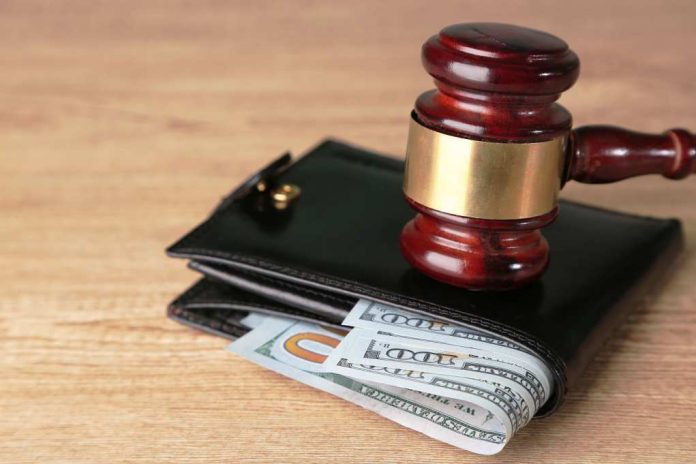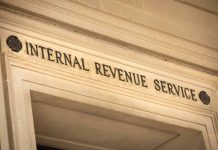
Can self-employment wages be garnished? After all, you’re paying yourself…is there any way lenders or legal entities could garnish your wages and remove money from your bank account? This is a topic shrouded in misconceptions. So, we decided to put together all the information you need to know about wage garnishment for self-employed people.
Wage garnishment can be very stressful to deal with regardless of your employment situation. However, understanding wage garnishment as an individual considered self-employed can raise some questions.
Oftentimes, self-employed individuals have these questions since they are technically both the employer and the employee. Luckily, understanding self-employment wage garnishment isn’t as complicated as it may seem! Before we get into what self-employed individuals, in particular, need to know, let’s start with a brief overview of wage garnishment in general.
What is Wage Garnishment?
In order to have a better understanding of self-employment wage garnishment, you must first make sure you have a clear understanding of what it means to have your wages garnished.
According to the U.S. Department of Labor, wage garnishment is a legal procedure that requires a person’s earnings to be withheld by an employer due to a court order. The withheld wages get sent directly to the individual, creditor, or entity that is due money. This is done until the debt gets repaid. Common reasons for wage garnishment include:
- Child Support
- Consumer Debts
- Students Loans
A majority of creditors won’t be able to have your wages garnished until they get a money judgment against you. This means that the creditor will need to sue you in court and win the case or get a default judgment (if you don’t respond). Once the creditor gets the judgment, they will send your employer the necessary documentation.
Once they send your employer the documentation, your employer will need to take out a specified amount of your wages. However, if your creditors have tax debts, federal student loans, alimony, or child support, they don’t have to get through the court system to garnish wages.
Can Self-Employment Wages be Garnished?
So – can self-employment wages be garnished? The answer about wage garnishment for self-employed people may surprise you…
The wages of independent contractors and freelancers cannot be garnished since wages are technically defined as earnings paid to an employee by an employer.
However, just because your primary source of income is self-employment income, you are not off scot-free.
Instead of a conventional wage garnishment, self-employed individuals can receive a non-earnings garnishment. This type of garnishment is for property besides personal earnings like wages.
What is the Difference Between Wage Garnishment and Non-Earnings Garnishment?
There are a couple of differences when it comes to these garnishments:
- A non-earnings garnishment is a one-time attachment of compensation that is provided for services rendered like receivables from a specific source, commissions, or a contract payment. On the other hand, conventional wage garnishment is usually continuous. This means it would be withdrawn from each paycheck until the debt is repaid.
- A non-earnings garnishment can reach your bank accounts as well as other property. A conventional wage garnishment can garnish up to 100% of your expected compensation.
There are other ways that a judge can order debt collection. Instead, they can order a till tap which is where a sheriff removes funds from a business cash register or through the seizure of a property.
What are the Limits on Both Conventional Wage Garnishments and Non-Earnings Garnishments?
Every state is different in its limits for garnishments. However, up to 100% of your expected compensation can be garnished. If you are facing conventional wage garnishment, then that is limited to no more than 25% of your disposable income, according to federal law. Again, keep in mind that state laws may be different!
What is the Consumer Credit Protection Act (CCPA)?
You may be able to find some federal relief with the Consumer Credit Protection Act (CCPA). This act has a broad definition for earnings and could potentially cover some of your self-employment income. A judgment creditor could only garnish the lower of:
- 25% of disposable earnings
- Disposable earnings minus thirty times the federal minimum wage.
If you are responsible for alimony or child support then up to 50% or 60% of your disposable earnings could be subject to garnishment. Exemptions are less for student loan debts or federal tax garnishments. It’s also important to note that some types of property may also be exempt. Again it is important to check in your locality because your state may be different from another!
How Can You Protect Yourself From Having Your Self Employment Wages Garnished?
If you receive a notification of a wage garnishment order, you may have the opportunity to protect or even exempt some or all of your wages. You can do this by filing an exemption claim with the court.
Another option you can consider is filing for bankruptcy. Your protections vary by the state since each state has its own exemption laws that determine the amount of income you will be able to keep. A professional will assist you further with wage garnishment self-employed.
Can Self-Employment Wages be Garnished? Wrapping Things Up
So, can self-employment wages be garnished? As you now know, the answer isn’t quite as straightforward as you may have initially hoped. But, we hope this article provided clarity on the topic. If not, reaching out to a professional for further guidance on wage garnishment for self-employed people is a great idea.
Receiving a wage garnishment order is never fun to deal with. Regardless of the fact you are self-employed, you may still have to deal with garnishment even if it isn’t with conventional wage garnishment. You may have to deal with non-earnings garnishment or other means of debt collection methods. There may be ways that you can protect yourself from wage garnishment if you:
- File an exemption claim
- File for bankruptcy
While each way has its own pros and cons, you need to see what specific protections are available by the state since exemption laws vary.
Want to learn more about self-employment? We have a full database of resources, including our articles on self-employment for retired people, where to declare self-employment income, how much self-employment income is taxable, and a commonly asked question – why are self-employment taxes higher?
At Daily Prosper, we’re here to empower you to financial freedom with detailed, educational resources no matter your financial journey!
















